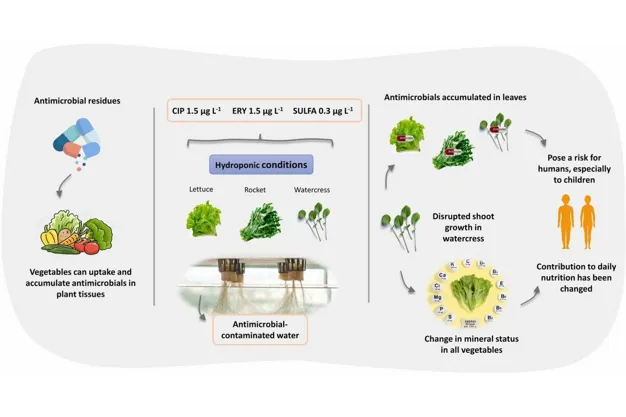The uptake of antimicrobials by vegetables can result in reduced plant production and compromise food safety, as these compounds can disrupt plant physiology and accumulate in plant tissues.
In this study, researchers investigated the effects of environmentally representative concentrations of ciprofloxacin (CIP, 1.5 µg L-1), erythromycin (ERY, 1.5 µg L-1), and/or sulfamethoxazole (SULFA, 0.3 µg L-1) on the physiology (growth and oxidative stress markers), nutraceutical characteristics (mineral composition and total phenolic content), and antimicrobial accumulation in hydroponically grown baby leaf lettuce, rocket, and watercress plants. Only watercress exhibited disrupted shoot growth.

Furthermore, increased concentrations of total phenolic compounds were observed in rocket plants when exposed to the antimicrobials. The drugs also had a significant impact on mineral nutrition, altering the mineral-recommended daily intake (RDI) of all plants, with rockets and watercress being the most affected.
Additionally, higher human health risks were observed in plants exposed to CIP, particularly concerning children. The presence of CIP in the growing water of hydroponic vegetables poses a notable risk to food safety due to the plant's ability to accumulate the drug in its edible parts.
Moreover, beyond the adverse effects on human health, the use of antimicrobial-contaminated water in vegetable cultivation can also disrupt watercress production, leading to significant economic losses.
Click here to access the entire study.
